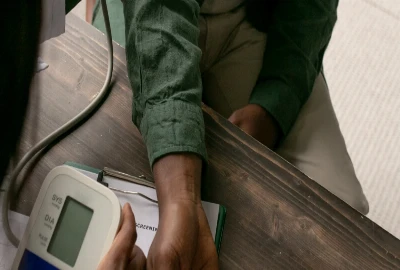Why You Don’t Have to Watch Everything to Be

We live in an era where entertainment never stops. Every week, new streaming shows, blockbuster films, viral YouTube series, and award-worthy albums are released. Add to that the endless recommendations from friends, critics, and TikTok “must-watch” lists, and suddenly being “caught up” feels like a second full-time job. The cultural pressure to stay current has transformed entertainment from a source of joy into a never-ending race.
But here’s the truth: you don’t have to watch everything to be “in the know.” Just because you skipped that one Netflix hit or didn’t keep up with the latest Marvel phase doesn’t mean you’re out of touch. Being part of cultural conversations isn’t about volume—it’s about perspective.
This blog explores how to navigate pop culture without drowning in it, why selective watching is actually more rewarding, and how to keep FOMO from dictating your viewing choices. If you’ve ever felt guilty for “falling behind” on shows or movies, this is your reminder that you’re not missing out—you’re just curating smarter.
The Myth of Cultural Homework
One of the biggest traps in modern entertainment culture is the belief that keeping up is mandatory. Streaming platforms thrive on this psychology, rolling out back-to-back releases and pushing autoplay so you feel compelled to consume endlessly. Social media only amplifies it—spoilers flood timelines within hours of a release, making it seem like you’ll be left out if you don’t watch immediately.
But cultural knowledge doesn’t come from watching everything; it comes from engaging with the right things. Think back: most classic cultural conversations didn’t require encyclopedic viewing. People bonded over a few shared touchstones—the season finale of Friends, Titanic in theaters, or the latest Harry Potter release. Today’s culture may be more fragmented, but the principle remains the same: you don’t need every show or movie under your belt to connect with others.
In fact, the myth of cultural homework often does the opposite of what it promises. Instead of making people feel included, it creates stress and fatigue. When watching becomes a chore, it strips away the joy that made you fall in love with storytelling in the first place. The guilt of being “behind” can also keep you from enjoying the content you do watch—because you’re thinking about what you should be watching next.
Breaking free from this mindset means realizing you can join cultural conversations without being a completist. Reading summaries, engaging with reviews, or watching clips can give you enough context to participate. More importantly, focusing on shows and films that genuinely resonate with you creates deeper, more meaningful discussions than surface-level chatter about every trending release.
The takeaway? Cultural relevance isn’t about breadth—it’s about connection. And connection doesn’t require you to treat entertainment like homework.

The Rise of FOMO Watching
If you’ve ever forced yourself to finish a show that you weren’t enjoying “because everyone’s talking about it,” you’ve experienced FOMO watching—consuming content out of fear of missing out rather than genuine interest. This phenomenon has skyrocketed in the streaming age, where platforms bombard us with new releases and social media fuels the sense of urgency.
FOMO watching is exhausting. Instead of savoring a story, you rush through it to avoid spoilers. Instead of choosing based on taste, you default to what’s trending. This leads to shallow engagement—you remember plot points but don’t connect emotionally with the material. And when the cycle repeats with the next “must-see” show, you’re left with a constant low-grade anxiety that you’ll never keep up.
The irony is that FOMO watching rarely delivers the satisfaction it promises. You might have something to say in conversations for a week or two, but the cultural cycle moves so quickly that yesterday’s obsession is tomorrow’s forgotten headline. Remember Tiger King? It was the biggest show in the world in 2020, but few people are still discussing it. Meanwhile, the series you genuinely loved—even if it wasn’t trending—likely left a deeper, longer-lasting impression.
To combat FOMO watching, shift your mindset from scarcity to abundance. Instead of worrying about missing out, recognize that you have access to more content than any generation in history. That’s a gift, not a burden. By letting go of the obligation to “stay current,” you make space for intentional choices that lead to richer enjoyment.

Quality Over Quantity: Why Curating Matters
Here’s the secret the entertainment industry doesn’t want you to know: you’ll never watch it all. And that’s okay. What matters isn’t checking every box—it’s finding what speaks to you.
Curating your viewing habits allows you to reclaim control. Ask yourself: what do I actually enjoy? Do I love character-driven dramas, offbeat comedies, or documentaries that expand my worldview? By identifying your preferences, you can cut through the noise of “must-watch” lists and zero in on content that will genuinely enrich your life.
This is where quality over quantity shines. Watching fewer shows with greater intention leads to deeper engagement. You remember the themes, reflect on the storytelling, and even rewatch moments that resonate. Compare that to bingeing five average shows in a rush—you finish them, but they blur together, leaving little lasting impact.
There’s also a mental health benefit to curating. Instead of overwhelming yourself with endless queues, you experience less guilt and more satisfaction. Studies on choice overload show that when people limit their options, they report higher levels of happiness and fulfillment. Entertainment should be no different.
Curating also makes you a more interesting participant in cultural conversations. When you share recommendations, people notice your picks are thoughtful, not just whatever was trending last week. Your unique perspective becomes your value—not whether you’ve checked off every box.
In short: the secret to being “in the know” isn’t watching everything—it’s watching with intention.

Smart Ways to Stay in the Loop Without Watching It All
So how can you keep up with cultural conversations without overloading your watchlist? Here are some practical strategies:
Leverage Recaps and Reviews – Reading episode recaps, think pieces, or video breakdowns can give you enough context to join discussions without watching every detail.
Watch Highlight Clips – Platforms like YouTube, TikTok, and Twitter often surface the most talked-about moments. A three-minute clip of a viral scene can keep you in the loop without hours of investment.
Follow Thoughtful Curators – Instead of relying on algorithms, follow critics, bloggers, or friends whose taste aligns with yours. They filter the noise and recommend gems that matter.
Dip In, Don’t Dive In – It’s okay to watch a pilot or a key episode without finishing the entire series. You’ll gain enough insight to participate in conversations and decide if it’s worth continuing.
Set Boundaries – Designate specific times for watching rather than letting it consume all your free hours. This prevents burnout and makes the experience feel intentional.
Be Honest – There’s power in saying, “I haven’t watched that, but I heard it’s great.” Most people appreciate authenticity over forced familiarity.
By using these strategies, you not only save time but also engage in culture on your own terms. You’ll discover that being “in the know” is less about volume and more about perspective, curiosity, and selective engagement.




